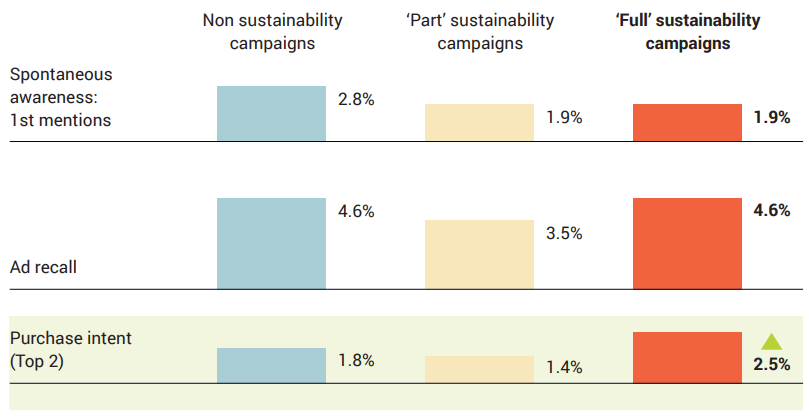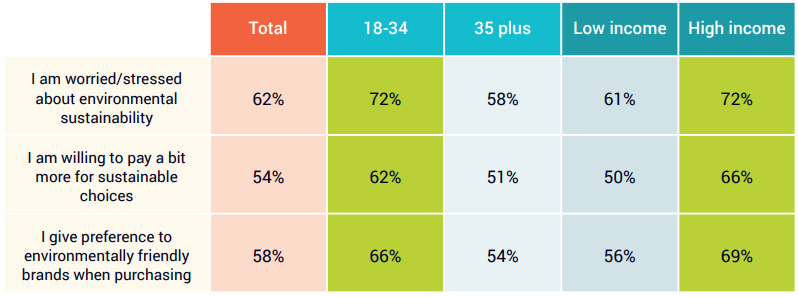‘Fully sustainable’ ads boost purchase intent


Ad campaigns with “fully sustainable” messaging significantly increase purchase intent.
That is according to a new research report conducted by brand measurement company On Device Research, in cooperation with purpose-led advertising platform Good-Loop.
According to the report, 71% of consumers surveyed displayed a stronger positive emotional engagement with fully sustainable ads, compared with 62% for partly sustainable campaigns.

Fully sustainable advertisements were defined as campaigns that put sustainability at the heart of some or all of the creative, and/or gives specific sustainability messaging. Part sustainable campaigns were defined as brand or product-lead and/or “more generic” in their sustainability messaging.
The study reviewed the creative and objectives of 1,562 campaigns from January 2019 to February 2023, spanning digital, out-of-home (OOH) and social media. It further found that full sustainability campaigns had positive effects on purchase intent, though it had neutral effects on ad recall and negative effects on first mentions compared to campaigns that do not focus on sustainability at all.

The report does note, however, that consumers are “savvier than ever” to greenwashing, meaning any hint of non-authenticity from brands relating to sustainability practices could present a risk.
“When it comes to sustainability, brands need to commit or go home, with brands that only mention sustainability as a part of their message underperforming compared to ads that make sustainability their sole focus,” said Good-Loop head of investment and sustainable media Claire Gleeson-Landry. “Consumers are voting for the world they want by rewarding brands that fully commit to making sustainability a priority.”
Want to make real progress on sustainability? Target the middle shades of green
It comes as most consumers (62%) admit they are worried or stressed about sustainability and 58% say they prefer environmentally-friendly brands. Similar numbers of respondents say they are making more sustainable choices in life (65%) and are willing to pay more to support sustainability (55%).
However, the report notes that “cost is currently a barrier when it comes to adoption” of sustainable practices, with higher income respondents 13% more likely to preference environmentally-friendly brands when purchasing.

On Device Research CEO and co-founder Alistair Hill added: “As the importance of sustainability continues to accelerate, brands stand in a unique position to positively engage consumers and as our report demonstrates, for those brands that do this well, the rewards are clear to see.”
